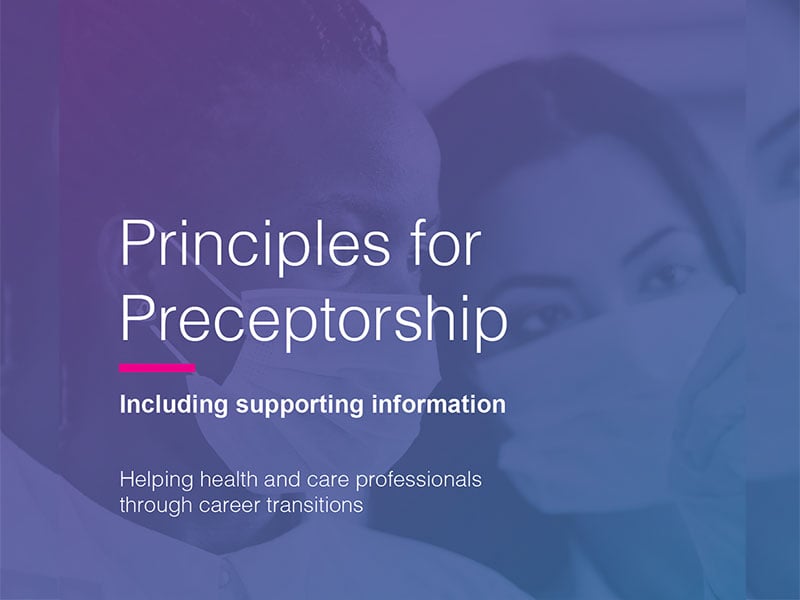Preceptorship and programmes to provide preceptorship should not be confused with other training or learning and development mechanisms.
This page provides information about other forms of support which may underpin or connect with preceptorship but should not be viewed as being equivalent to it.
Coaching
'Coaching aims to produce optimal performance and improvement at work. It focuses on specific skills and goals, although it may also have an impact on an individual’s personal attributes such as social interaction or confidence. The process typically lasts for a defined period of time or forms the basis of an on-going management style.’
Source: Chartered Institute of Professional Development (CIPD)
A preceptor may adopt a coaching approach in providing support to an individual preceptee.
Induction / Onboarding
‘Induction is an opportunity for an organisation to welcome their new recruit, help them settle in and ensure they have the knowledge and support they need to perform their role.’
Source: CIPD
Induction or onboarding programmes are key to establishing a new employee into their place of work and their service, and a can be incorporated into preceptorship offers for newly recruited registrants.
This can be done by ensuring that they are included in the preceptees preceptorship programme or by ensuring newly employed preceptees are made aware of any arrangements available to them, via their preceptor where suitable.
They can be used as a mechanism to ensure registrants are enrolled onto preceptorship programmes, for example by alerting education teams about new members of staff., and to highlight preceptorship and the benefits it can give to the preceptee, preceptor and the organisation.
Probation
A probation period is a set amount of time at the start of a new employment designed to allow an employer to decide whether someone is a good fit for the job. Probation periods aren’t compulsory, although most UK employers use them. A probation period may be included in an employment contract and be overseen by an employee’s manager.
A key difference between probation periods and preceptorship is that probation is directly connected to a registrant’s employment contract.
Preceptorship programmes should be designed to support preceptees as they settle into new roles, be they newly qualified or experienced registrants changing roles or employers.
Wherever possible Preceptors should be drawn from outside the registrant’s management chain, so that the two are not confused and that the relationship between the preceptor and preceptee is understood to be supportive and developmental.
Mentoring
‘Mentoring in the workplace tends to describe a relationship in which a more experienced colleague shares their greater knowledge to support the development of an inexperienced member of staff. It calls on the skills of questioning, listening, clarifying and reframing that are also associated with coaching.’
Source: CIPD
Preceptorship is different to mentoring, as it aims to provide guidance to gaining experience and applying learning in a clinical setting during the preceptorship period. A preceptor may use mentoring skills or approaches in providing support to a preceptee on a preceptorship programme.
Supervision
While there is no single or agreed definition of supervision, at its core, supervision is a process of professional learning and development that enables individuals to reflect on and develop their knowledge, skills, and competence, through agreed and regular support with another professional.
Supervision can have different forms and functions, and there are a wide variety of terms used depending on the workplace.
These include:
- Practice / clinical supervision, which aims to support learning and develop competency related to a specific clinical task.
- Professional supervision, which is largely focused on identifying professional learning and development needs and CPD.
- Operational/line management supervision.
More information on supervision is available here.
Preceptorship is different to practice/clinical and operational/line management supervision in that it tends to be focused on one area or issue and is often provided or used by registrants seeking to improve their skills or advance their careers, rather than at points of transition.
Preceptorship is similar to professional supervision and can be incorporated into a professional supervision arrangement where other arrangements are not practicable.
However, there will need to be a clear agreement between the preceptee and the preceptor to ensure that there is a clear delineation between them, e.g., in recording meetings or discussing concerns.

